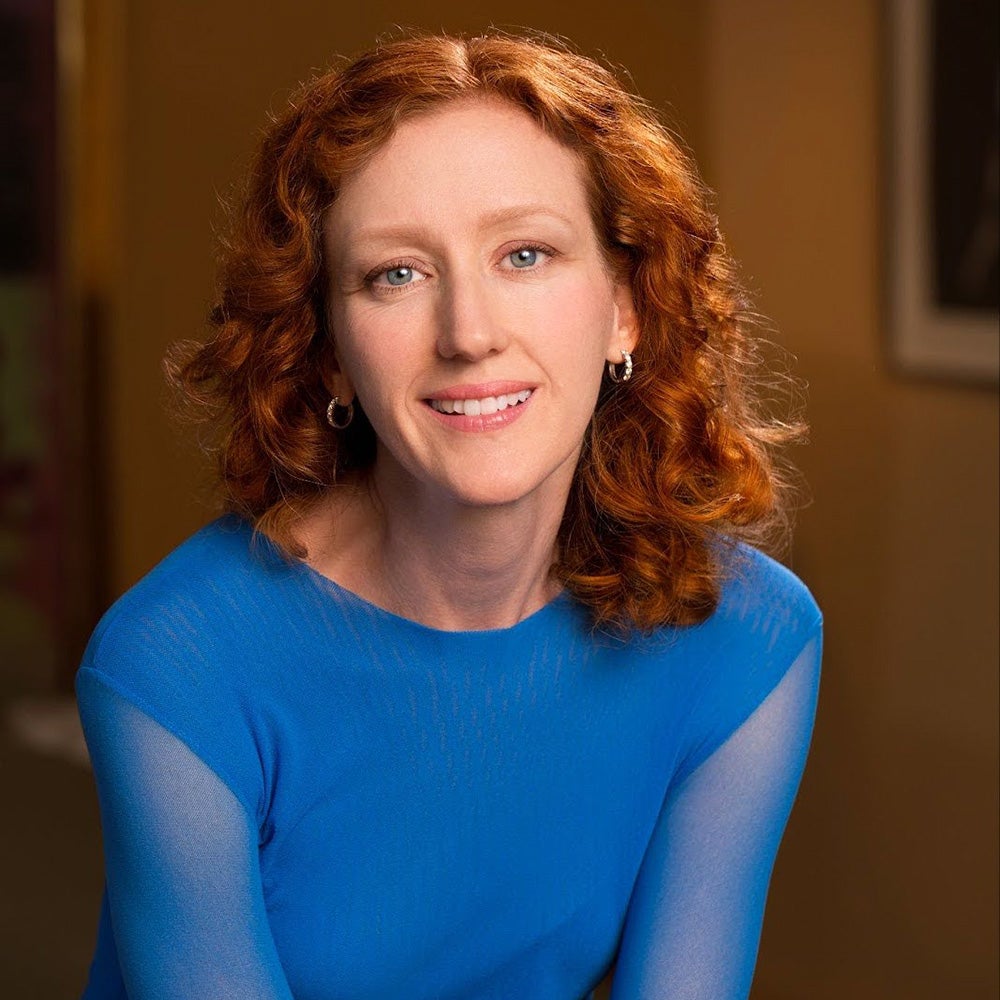We must foster an academic environment where every person knows that their unique identity and lived experience is critical for a world-class education.
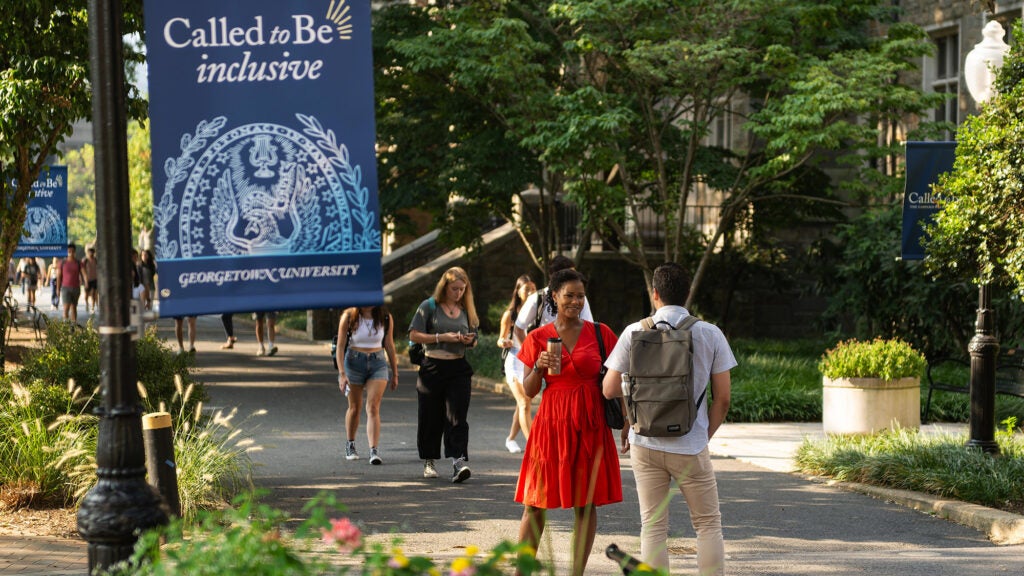
Executive Faculty Statement on Equity, Diversity, Inclusion and Anti-Racism
Supporting our collective foundational mission to advance health equity, the School of Health profoundly rejects racism, faith-based persecution, sexism and gender discrimination, ageism, homophobia, ableism, xenophobia, and transphobia.
These and all other forms of bias, discrimination, prejudice, and hate directed at persons — expressed overtly or covertly at the interpersonal, institutional, and/or structural levels — threaten our collective humanity through harming both the ability of individuals and communities to truly flourish, and the promotion of equity, justice, and the common good.
The School of Health, consistent with Georgetown’s Catholic, Jesuit identity, supports an academic environment that is diverse, inclusive and respectful, and we commit to building upon and promoting this work through humility and the transparent practices, policies, resourcing, and values of our academic community.
Approved by the School of Health Executive Faculty on January 18, 2023
Meet Our Champion of Equity, Diversity, Inclusion and Anti-Racism Initiatives
Greetings! I am delighted to serve as your Champion of Equity, Diversity, Inclusion and Anti-Racism Initiatives. When I took on this inaugural role, I envisioned a School of Health where a sense of belonging supports and nurtures us in the important work we do as change agents, to create a more equitable and just world. My goal is for each of us to feel, deeply, that we belong at our school.
My sense of belonging stems from my childhood. I grew up in a small, rural county in southern Appalachia in the late 1970s, where I learned that you never pass by someone in need. Cultural values that are appreciated today — kindness, hospitality, caring for neighbors, and a sense of independence through interdependence — reflected determination to take care of oneself and community. Nearly everyone (including my family) lived well below the poverty line, but our wealth was in the strength of community relationships. My parents were a social worker and a sociologist, so I became adept at an early age at understanding these dualities.
My participatory action research and teaching, focused on wicked problems and especially vulnerable communities, is based on the simple idea that I learned as a child: Everyone is important and has an important role to play in making our world a better place. In my work, I experience firsthand the toll that change agency places on individuals and their families. Systems change can take a long time, and the work can evoke emotional fatigue, anxiety, fear, grief and anger. A sense of belonging has a protective effect against these emotions and can help sustain us as we take up this important life’s work.
You belong at the School of Health! Please explore these resources and be in touch to join us in our work to create belonging.

A Focus on Well-Being
Equity, diversity, inclusion and anti-racism are essential to well-being. Our community is working to determine what well-being means for each of us, individually, and for our school community.
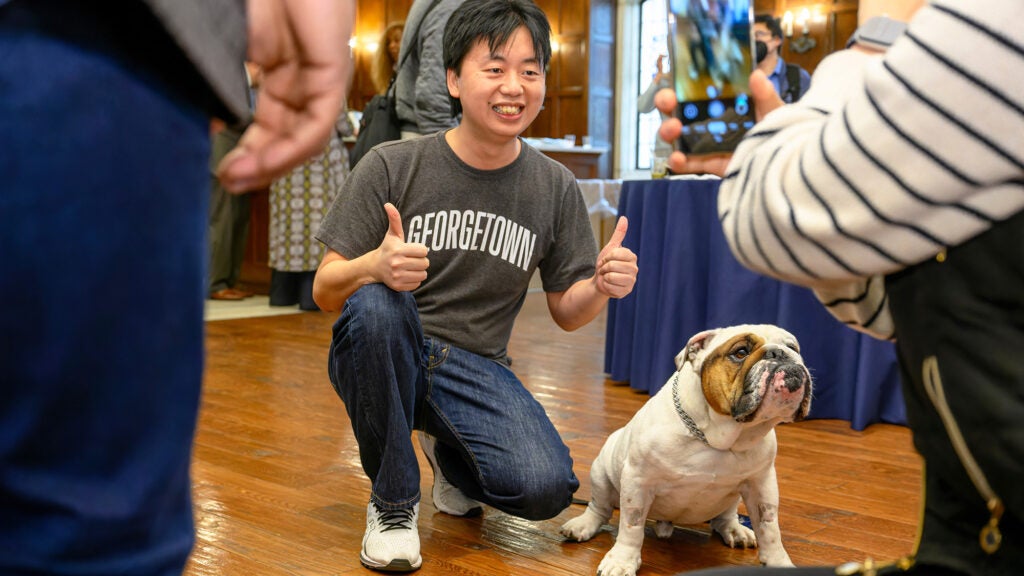
Well-being has several definitions. It can be thought of as the fullest embodiment of mental, physical, psychological, and spiritual health: healthy relationships, social ties, a sense of empowerment and belonging, emotional resiliency and more. It can also be defined as the absence of social ills, such as loneliness, isolation, violence, racism and bigotry, political disenfranchisement, and exclusion.
We invite you to explore the resources on this page, and to join the discussion around well-being at the School of Health.
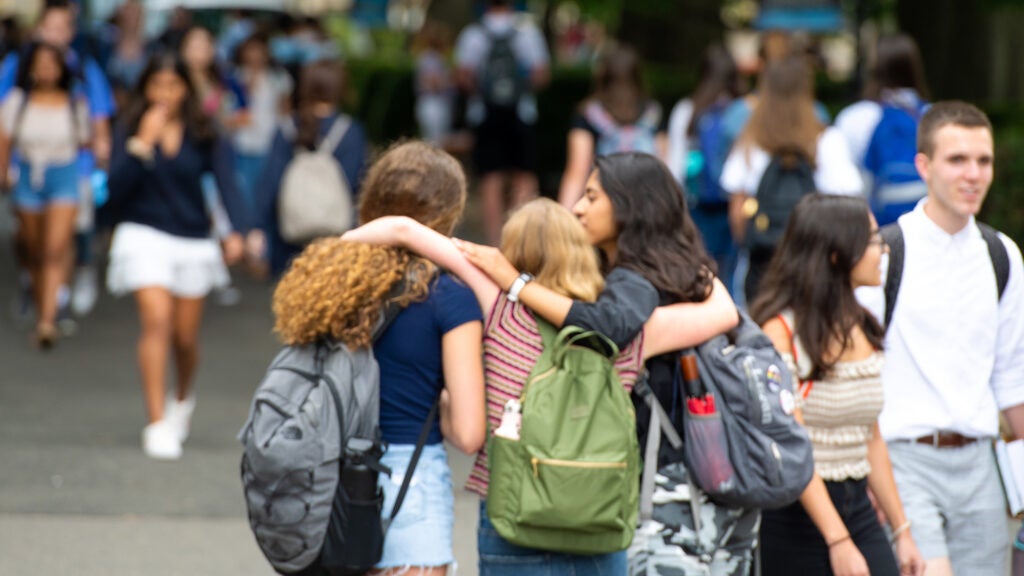
Leadership Committee
Students:

As an undergraduate school with a high level of demographic diversity at Georgetown, it is imperative that the School of Health serves as a space where individual differences are both acknowledged and praised. Through my work, I am dedicated to cultivating a community where a shared sense of belonging and optimal well-being are of utmost importance.
Kayla Wontumi, Equity, Diversity, Inclusion & Anti-Racism Research & Community Development Assistant
Faculty:
- Jessica Kritz | Department of Global Health
- Gultekin Gollu | Department of Health Management and Policy
- Blythe Shepard | Department of Human Science
- Shabab Wahid | Department of Global Health
- Joan Riley | Department of Human Science
- Ilona Argirion | Department of Human Science
- Allison Marshall | Department of Human Science
Initiatives
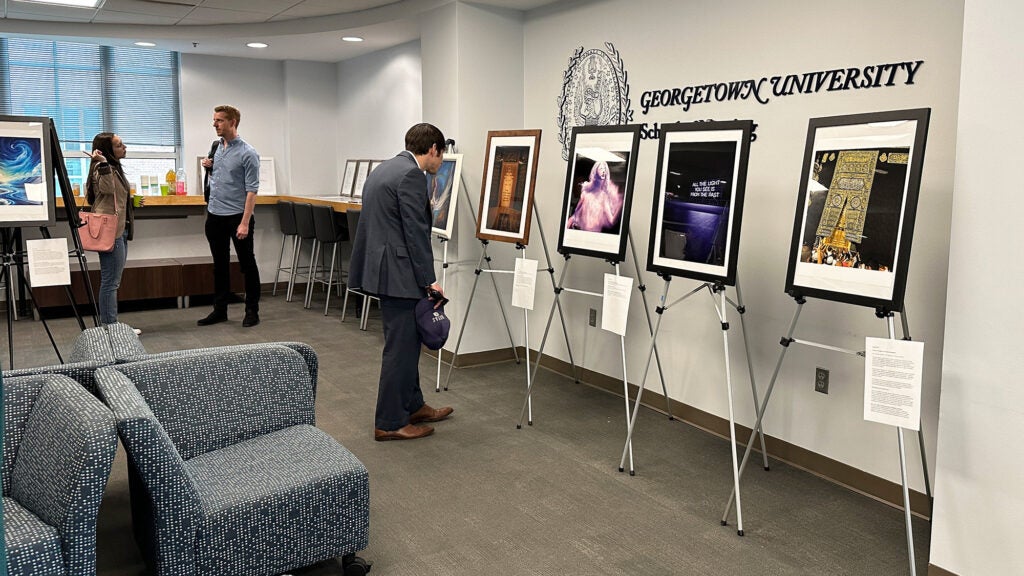
Students, faculty and staff gathered in St. Mary’s Hall to celebrate “From Ill-Being to Well-Being and the Liminal States In-Between: Art Exhibit,” a student-centered, semester-long multimedia art campaign intended to promote conversations about mental health presented by the School of Health’s Global Mental Health and Well-Being Initiative.
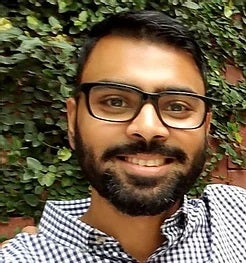
Shabab Wahid, DrPH, MPH, directs the Global Mental Health & Well-Being Initiative.
Global Mental Health & Well-Being Initiative
An interdisciplinary coalition of faculty, staff and students at Georgetown University to conduct research, develop pedagogy, and engage in informed activism and advocacy to improve mental well-being and psychosocial outcomes locally, nationally, and globally.
Musical Spirit of the School of Health Initiative
This music initiative brings students, professors and staff together through musical events, fostering a sense of community and belonging within the School of Health. From open-mic lunches to performances at school events, we use music’s universal language to break boundaries, build connections and contribute to a supportive and healthy campus environment that enhances everyone’s well-being.

School of Health professors Gultekin Gollu and Vincent Turbat organized an intercultural music initiative that brought together students, professors and staff to play at school events, including the end-of-year picnic pictured here.
Promoting Inclusion and Accessibility for People With Disabilities
Collaboration With Melwood

Melwood is a leading employer, advocate and service provider for people with disabilities in the Washington, D.C., metro area, with over 1,500 employees, nearly 900 of whom have disabilities, and provided career exploration and job placement for over 3,000 people each year.
The School of Health’s collaboration with Melwood equips our students with a lens of humility. Through this collaboration, students develop the skills to enter the health care workforce with an understanding of the multifaceted strengths, opportunities and unique needs presented by disability. In the classroom, our strategic relationship with Melwood facilitates an inclusive and accessible teaching and learning environment for all.
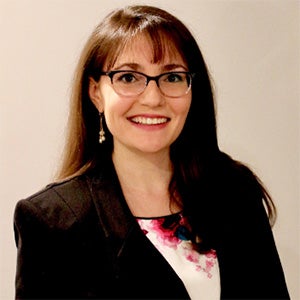
Assistant Professor Ilona Argirion, PhD, MPH, organizes the Neurodivergence Student Group
Neurodivergence Student Group
This student group, organized by Professor Ilona Argirion, is dedicated to fostering an inclusive and supportive community for neurodivergent students. We aim to provide a safe space where individuals can connect around this shared interest, exchange experiences, and advocate for greater understanding and accessibility on campus. Through student-driven events, discussions and peer support, we strive to celebrate neurodiversity and empower students to thrive academically, socially and personally.
Faculty Teaching Award
Rooted in our foundational principles of equity, diversity, inclusion and anti-racism, this prestigious honor recognizes the work of a dedicated faculty member who exemplifies the core values of the School of Health both within and beyond the classroom. The recipient is persistent in fostering a sense of belonging and upholding a supportive academic and social community, as reflected by the values that are integral to the School of Health.
Learning, Equity, Access and Pedagogy

The School of Health was awarded a $10,000 grant from the CNDLS LEAP Initiative to build a school of health where we all belong.
At a school level, we hope our empowerment approach empowers cohorts (staff, faculty, students) to build community within their groups and then between groups. We believe that establishing “belonging” as a central tenet, from the beginning of a new school, creates school level and institutional level change. Consistent with “well-being” as a founding principle of the school is “belonging.” Belonging reflects the development of weak ties, which recent research has shown are core to well-being. By focusing on belonging we are prioritizing an area of well-being over which an organization has control, in order to advance our practice of creating an environment where well-being is a priority.
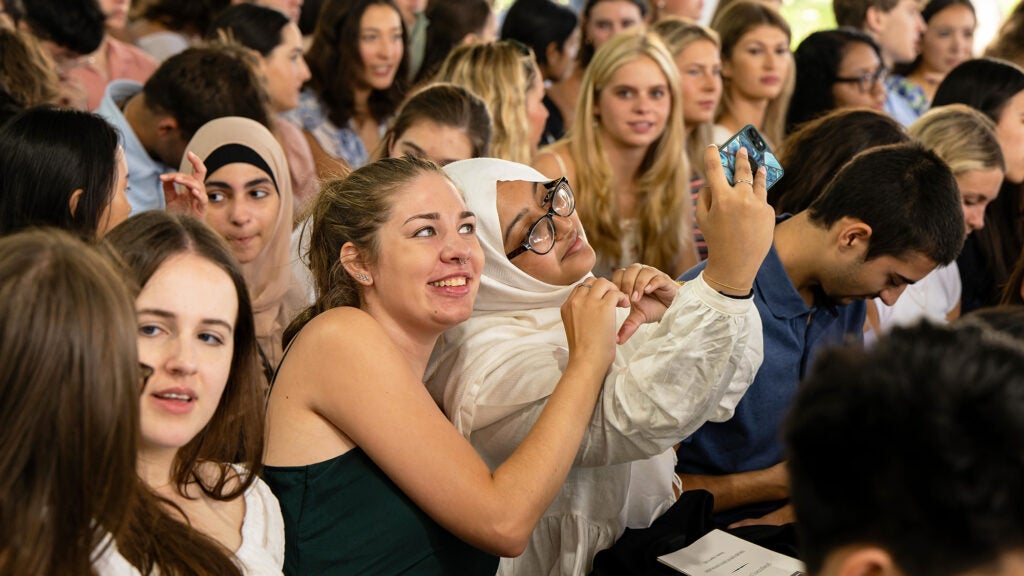
Resources to Nurture Our Well-Being
Events Evaluation Form
Attended a School of Health EDI-A event recently? Click below to let us know how we did.

